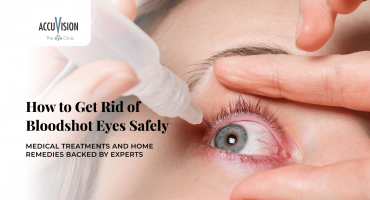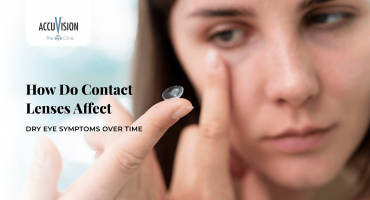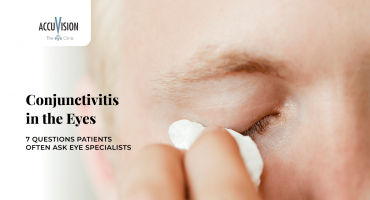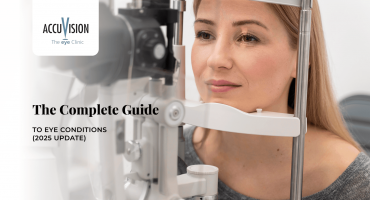- What does an optometrist do?
- Private vs NHS Optometrist: what’s the difference?
- Comparing the Cost of Eye Tests in the UK
- Choosing the right Optometrist: what to look for
- What happens during an eye examination in the UK
- Eye health tips for UK patients
- Frequently asked questions
- Reference
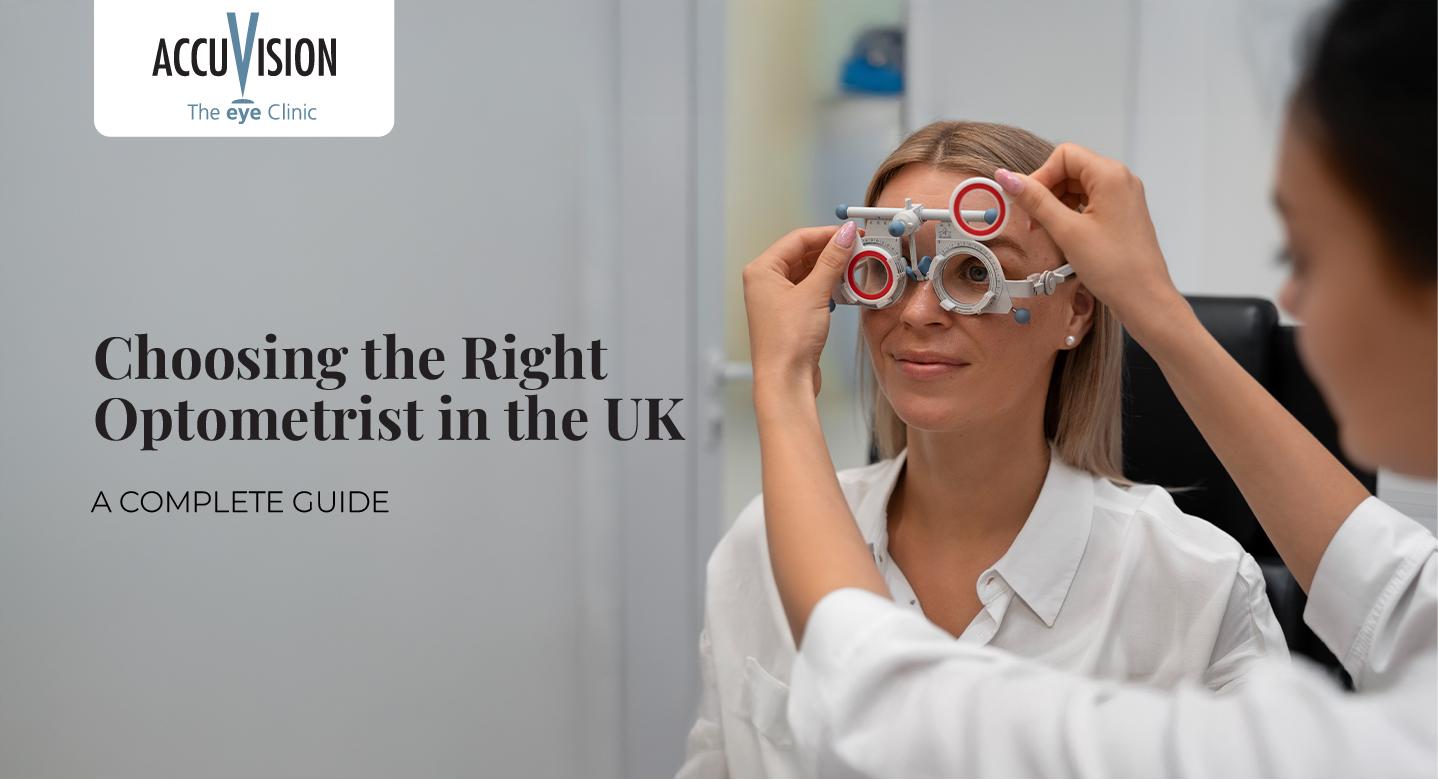
Finding the best optometrist near you in the UK can feel daunting when you’re not sure what to look for.
This guide explains how to choose a professional who not only tests your vision but also helps you protect your long‑term eye health.
We’ll discuss private versus NHS eye care, costs, and what to expect during an eye test, and end with practical eye‑health tips.
What does an optometrist do?
An Optometrist is a specialist trained to provide primary care for eyesight and overall eye health. They are trained to check eyesight, detect eye problems, and offer suitable management and treatment advice based on their specialty. In the UK, optometrists are regulated by the General Optical Council (GOC) and complete a minimum of three years of university study along with supervised clinical training. They can prescribe glasses or contact lenses and are skilled at detecting eye diseases such as glaucoma and cataracts during routine examinations. A separate category of specialist is the Ophthalmologist, a medical doctor trained to perform surgery and treat eye diseases. When choosing an eye care provider, it helps to know who can provide which services: optometrists manage routine care, investigate symptoms and if necessary refer to Ophthalmologists for required medical or surgical care.
Private vs NHS Optometrist: what’s the difference?
In the UK, you can access eye care through both the NHS and private practices. NHS eye tests are free for eligible groups, including children, people over 60, and those with certain medical conditions or benefits. These appointments cover essential checks for vision and common eye conditions.
Private eye examinations, on the other hand, are usually paid services that may include additional time for consultations and, in some cases, access to advanced diagnostic tests. For example, some private clinics may offer scans such as Optical Coherence Tomography (OCT) or corneal mapping, which can help in early detection of certain eye conditions. These additional services can be useful for people with specific risk factors or those who prefer extra reassurance, but they are optional and not always necessary for routine care.
Comparing the Cost of Eye Tests in the UK
The cost of an eye examination in the UK varies depending on the clinic and the level of service provided. On average, a standard eye test typically ranges from £20 to £30, while additional scans or specialised assessments may involve extra charges.
Choosing the right Optometrist: what to look for
1. Qualifications and registration
Make sure your Optometrist is officially registered with the General Optical Council (GOC). The GOC website provides a list of licensed practitioners and their registration numbers.
2. Experience and specialisation
Eye health is complex. Clinics with highly experienced practitioners often pick up subtle signs of disease that a less experienced examiner might miss. AccuVision stresses that their specialist team has over 20 years of experience and uses advanced technology to detect issues like cataracts, keratoconus, glaucoma, and diabetic eye disease. Ask about experience with specific conditions if you have particular concerns (e.g., glaucoma, dry eye, keratoconus).
3. Technology and facilities
Advancements in eye care have made early detection much easier. Clinics offering digital retinal imaging, OCT, corneal topography and automated visual field testing can identify problems earlier than traditional methods. When comparing practices, ask whether these tests are available. For example, OCT scans can detect glaucoma before symptoms appear, and corneal topography can identify keratoconus in its early stages.
4. Patient reviews and reputation
Research online reviews, testimonials and ratings. Reliable clinics will have a strong reputation for patient satisfaction, thoroughness and clear communication.
5. Location and opening hours
Convenience matters when scheduling appointments or follow‑ups. Choose a practice that fits your schedule and is accessible to you.
6. Cost transparency
Look for costs of tests, glasses, contact lenses and follow‑up visits. Ask about charges and whether any bundled packages or promotions are available. Balance the price against the quality of care you receive.
What happens during an eye examination in the UK
A full eye examination usually takes between 30 to 60 minutes and involves a series of assessments. The Community Eye Health Journal notes that a routine eye exam should screen for diseases like glaucoma, cataracts, and macular degeneration. Here’s what usually happens:
- History and symptoms: You’ll be asked about your general health, medications, family history of eye diseases, and any vision concerns. Taking a detailed history helps focus the examination and investigations.
- Visual acuity test: Reading letters on a chart measures how well you see at various distances. A pinhole test may also be used to determine if blurred vision is due to refractive error. Specialised vision testing and charts may be used for patients with certain needs or underlying conditions.
- Refraction: If you need glasses, the Optometrist determines your exact prescription using lenses and devices like a phoropter and subjective as well as objective tests.
- External and internal eye examination: Using a microscope, the practitioner checks your eyelids, conjunctiva, cornea and pupil. Your Optometrist may place dilating drops in your eyes to widen the pupils, making it easier to see the retina and optic nerve clearly or measure prescription objectively.
- Intraocular pressure (IOP) test: A puff of air or a gentle probe measures the pressure inside your eye. Elevated IOP can indicate risk of glaucoma or other health concerns.
- Visual field test: This determines if you have peripheral vision loss, which can be an early sign of glaucoma.
Eye health tips for UK patients
Routine eye examinations are essential for maintaining healthy vision. Additional recommendations include:
- Protect your eyes from UV light. Choose sunglasses that provide full protection by blocking 99–100% of both UVA and UVB rays. Prolonged exposure increases the risk of cataracts.
- Eat a balanced diet. A diet rich in omega‑3 fatty acids, vitamins A, C, and E supports eye health and may help reduce dry eye symptoms.
- Limit screen time and take breaks. Follow the 20‑20‑20 rule: every 20 minutes, look at something 20 feet away for at least 20 seconds.
- Don’t smoke. Smoking increases risk of cataracts and age‑related macular degeneration.
- Be aware of family history. Conditions like glaucoma and keratoconus can run in families; early screening is vital if a relative has been diagnosed.
Frequently asked questions
Q1: How often should I have my eyes tested?
The NHS recommends a sight test every two years for most adults and every year for people over 60 or those with risk factors such as diabetes or a family history of glaucoma. Your Optometrist may advise more frequent checks based on your needs.
Q2: Are NHS sight tests as thorough as private exams?
NHS tests cover essential checks and detect common diseases. Private exams can often include more advanced imaging (like OCT) and longer consultations or investigations. If you have specific concerns or high-risk factors, a private exam with advanced technology might be beneficial.
Q3: What should I bring to my appointment?
Bring your current glasses or contact lenses, a list of medications, and information about your family’s eye history. If you wear contact lenses, you might need to remove them before the exam.
Q4: Can Optometrists prescribe medication?
In the UK, Optometrists with specialist training can prescribe certain medications for common conditions such as infections and dry eye. For more complex treatment or surgery, they may refer you to an Ophthalmologist. Private eye clinics can offer unique settings where Optometry and Ophthalmology co-manage patient care for optimum outcomes, providing timely and appropriate care.
Q5: How do I know if an Optometrist is right for me?
Consider their experience, technology available, communication style, and how comfortable you feel. Reading reviews and seeking recommendations can also help.
Summary
Choosing the right Optometrist in the UK involves balancing cost, expertise, and personal comfort. Regular eye exams, sun protection, healthy habits, and awareness of your family history help keep your vision clear and your eyes healthy throughout life.
Reference
Yadav, S. and Tandon, R. (2019). Comprehensive eye examination: what does it mean? Community Eye Health, [online] 32(107), p.S1. Available at:
https://pmc.ncbi.nlm.nih.gov/articles/PMC7041818/




